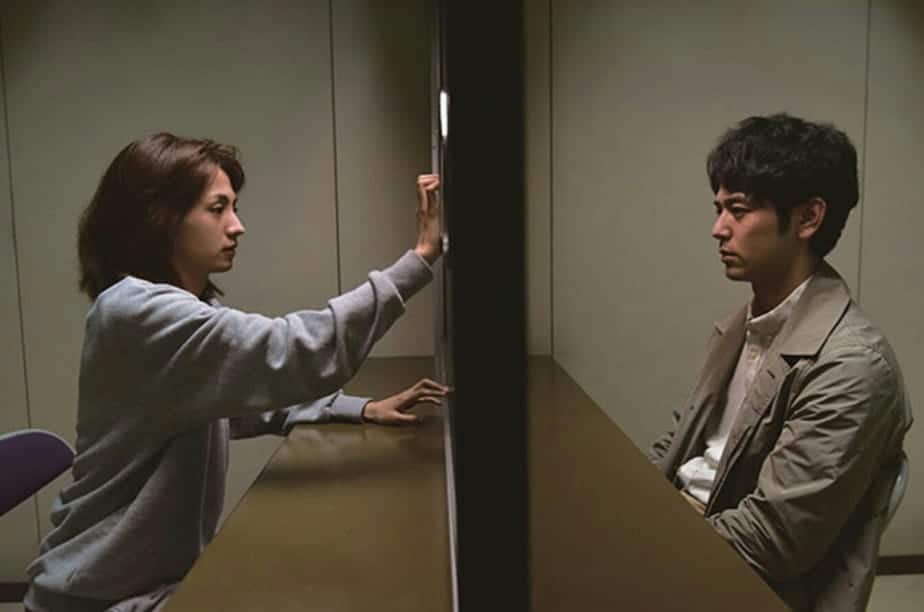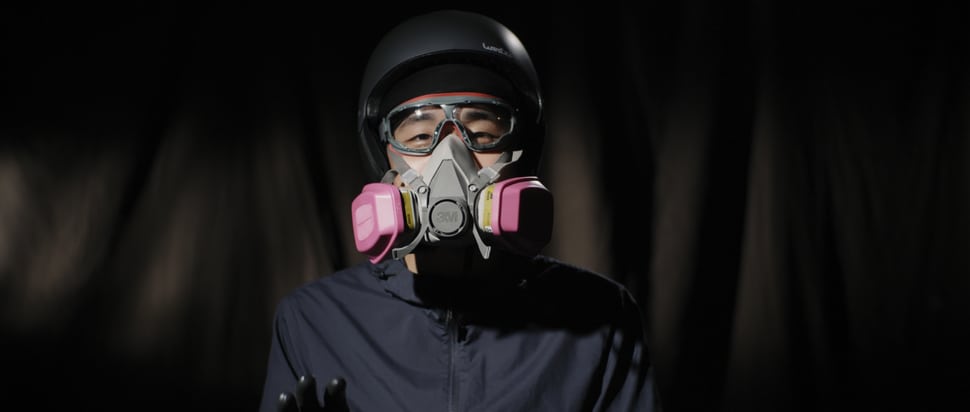“Traces of Sin” is director Kei Ishikawa's first narrative feature film. It is based on a detective novel by Tokuro Nukui. The story follows crime journalist Tanaka's (Satoshi Tsumabuki) reinvestigation of a murder of an upper-middle class family which happened a year ago. The police never found the murderer. However, during Tanaka's investigation, some new clues have emerged and they may have showed who the real murderer is. At the meantime, Tanaka has to take care of his traumatized sister who is in jail, because of her negligence of her child.
Buy This Title
While the film follows the investigation of the journalist, “Traces of Sin” doe snot focus on finding who the real murderer is. Instead, as the director has pointed out in one interview, the film wants to show that everyone can commit sins in their lives. No one is perfect, but no one is totally evil either. In the opening scene, we see Tanaka on a bus and a middle-aged man is demanding him to give his seat to a senior woman. Tanaka gets up and limps toward the door. We notice that the middle-aged man is aware of this and embarrassed by his previous action. Suddenly, Tanaka falls down. We now are sympathizing with Tanaka. However, when Tanaka gets off the bus, the film focuses on his feet, and we see him changing the ways he moves from limping to walking normally. We are forced to shift our perception and judgment of Tanaka. Who is he? And what kind of person will pretend to be disabled just to get back at someone he hates? We never really know Tanaka's intentions and we can never be sure that we know the true character of Tanaka. All we can do is to let the film leads us to experience one after another situation where our perception and judgment of one character is shifted and readjusted.
In another marvelous scene, Tanaka's sister Mitsuko (played by the brilliant Hikari Mitsushima) confesses about her life. Mitsushima faces directly at the camera. At first, we are not sure who she is speaking to. Is she speaking to another character in the room? Is she speaking to herself? Is she speaking to us? What are we going to do with this sensitive information? What are our ethical responsibilities? In the end, the film saves us from this sense of uncertainty and gives an answer to the question. But what is unforgettable is that the movie reminds us how partial our understandings of the world are.
The film operates on the principle of mismatch. In many scenes, it shows mismatches between characters' interpretations of a given situation and the reality. In one scene, where Tanaka interviews an ex-girlfriend of the murdered husband, Takou (Keisuke Koide), we hear the ex-girlfriend perceptively describing the mental state of the murderer of the Takou family. However, her theory of the motive and the identity of the murderer are wrong. The film constantly creates this feeling of ambivalence. “Traces of Sin”creates a world where people can be right and wrong at the same time. Easy answers are hard to find. We can only hold our judgment.
I was surprised to learn that this is only the director's first feature film. Ishikawa has a keen sense of the nature of the medium. He finds a cinematic way to adapt the novel. The unnerving mise-en-scène, stylized camera movements and elegant classical music score create a unique imaginary world. In addition to the technical achievement, Ishikawa knows when to let the actors show off what they can do. Mitsushima's excellent minutes-long monologue is as exciting as any lush camera movement in the film.
Through this film, Ishikawa shows he is a force to be reckoned with. And I can not wait to see where he will bring us next.

















